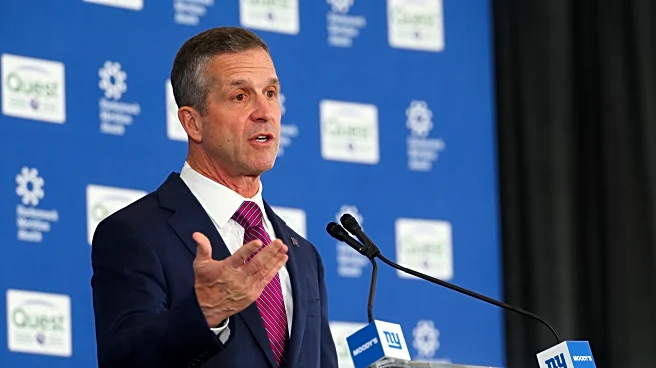What's Happening?
John Mackey, the former CEO of Whole Foods, disclosed in a recent interview that he was pressured into selling the company to Amazon due to threats from activist investors. In 2017, Jana Partners, an activist hedge
fund, acquired an 8.8% stake in Whole Foods, becoming its second-largest shareholder. Mackey recounted a meeting with Jana Partners where they threatened to take over the board, fire him, and sell the company. Faced with declining sales and intense competition, Whole Foods was vulnerable to such pressure. Mackey explored alternatives, including reaching out to Warren Buffett and considering a merger with Albertsons, but ultimately decided Amazon was the best option. The acquisition was announced in June 2017, with Amazon purchasing Whole Foods for $13.7 billion, a 27% premium over its stock price.
Why It's Important?
The sale of Whole Foods to Amazon marked a significant shift in the retail industry, highlighting the influence of activist investors in corporate decisions. The acquisition allowed Amazon to expand its footprint in the grocery sector, offering lower prices and integrating Amazon Prime into Whole Foods' operations. This move disrupted traditional supermarket economics, causing a substantial drop in market value for competing grocery retailers. For Whole Foods, the acquisition provided a solution to its operational challenges, benefiting customers with price reductions and employees with wage increases. The deal exemplifies how activist investors can drive major corporate changes, impacting shareholders, employees, and consumers.
What's Next?
Following the acquisition, Amazon has continued to integrate Whole Foods into its broader retail strategy, leveraging its technology and logistics capabilities to enhance grocery shopping experiences. The long-term impact on the grocery industry remains to be seen, as competitors adapt to the new landscape shaped by Amazon's entry. Mackey, having retired in 2022, has shifted focus to his new venture, Love.Life, a holistic health and wellness center. The evolution of Whole Foods under Amazon's ownership will likely continue to influence retail strategies and consumer expectations in the grocery sector.
Beyond the Headlines
The Whole Foods acquisition by Amazon raises questions about the ethical implications of activist investing and corporate governance. The aggressive tactics used by Jana Partners highlight the power dynamics between shareholders and company executives. This case underscores the need for companies to balance shareholder demands with long-term strategic goals. Additionally, the integration of Whole Foods into Amazon's ecosystem reflects broader trends in retail consolidation and the growing influence of technology companies in traditional markets.











